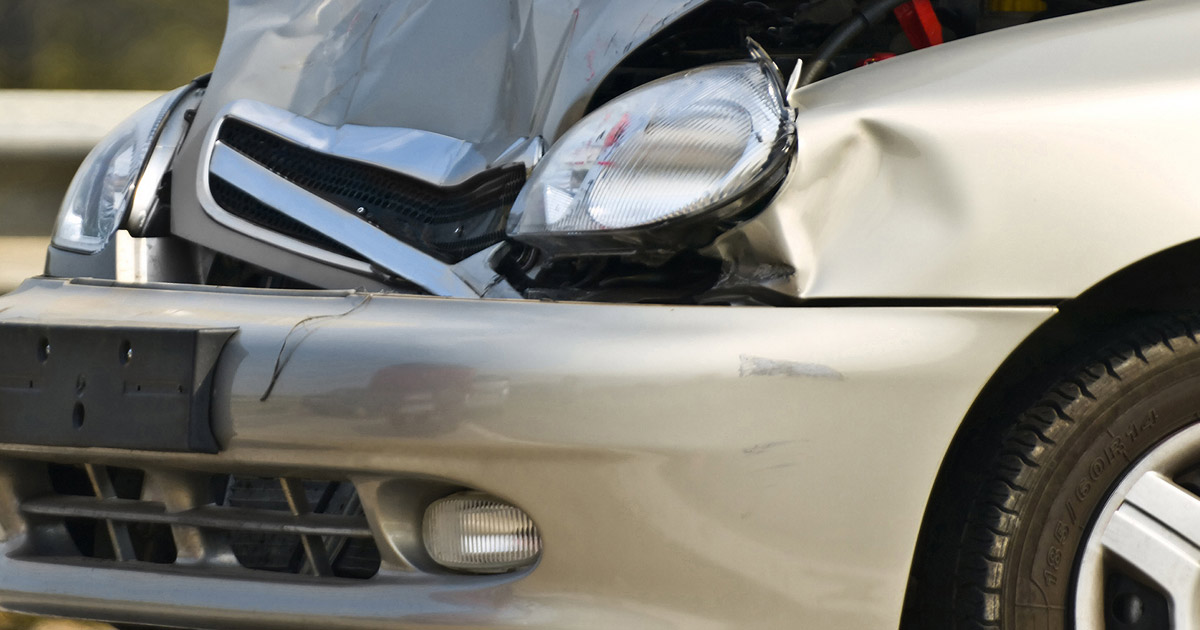Public roads are a common site of car accidents that are caused by reckless drivers, traffic congestion, and poor visibility. However, many crashes also occur on private property. Who is responsible for a car accident on private property depends on several factors, including what caused the crash and which involved parties were negligent.
Car accidents on public roads often occur at high speeds and result in injuries ranging from minor to severe. A National Highway Traffic Safety Administration (NHTSA) statistical projection of traffic fatalities for the first quarter of 2019 shows that there were 8,200 crash-related deaths. The fatal crashes commonly occurred on highways, intersections, and rural two-lane public roads. For car accidents on public roads, liability is typically determined based on which individual caused the accident.
Determining liability for an accident on private property is not always straightforward. These types of accidents most commonly occur in the parking lots of buildings or businesses managed by property owners. While an individual driver may be at fault, in certain circumstances, a property owner may face liability for injuries arising from an accident.
Car accidents on private property typically occur at lower speeds, so injuries may not be as serious. However, injured parties may still be eligible to collect compensation for medical bills, lost wages, vehicle damage, and other losses from responsible parties.
What Should I Do After a Car Accident on Private Property?
Injured parties should seek medical attention as soon as possible, and contact a qualified car accident lawyer before giving any statements to insurance companies. Additionally, they should take pictures of the scene of the accident, document their rendition of how the crash happened, and gather any witness accounts. Involved parties are also advised to report the accident to the police and to exchange information with other drivers.
Obtaining security footage from the property owner may be useful for a future personal injury case. Depending on the individual and the circumstances of the case, a property owner may not be willing to turn over video that could assist in proving their liability. However, injured parties should at least attempt to recover such valuable evidence; if unsuccessful, a lawyer may be able to help.
Law enforcement may also not be as willing to issue a ticket to a driver involved in an accident on private property; nonetheless, injured parties should request that the reporting police officer create one. At the very least, an incident report should be obtained from the property owner.
Potentially Responsible Parties in a Private Property Car Accident
Negligence is the foundation for all personal injury lawsuits; a plaintiff must prove that the other party’s recklessness caused them to become injured. To do so, a plaintiff must show that the defendant owed the plaintiff a duty of care, that the defendant failed to uphold that duty, and that breach of duty caused the plaintiff’s injuries. The driver and property owner may be responsible for the car accident.
A driver may be responsible if the following factors contributed to the accident:
- Distracted driving
- Drunk driving
- Failing to follow traffic laws
- Speeding
A property owner may also be responsible, even if they were not directly involved in the accident. Under premises liability, property owners must exercise reasonable care in ownership and maintenance of their property. If someone is injured due to the property owner’s failure to do so, the property owner may be held liable. Therefore, even if there was a hit and run involving another driver, the property owner may be responsible for the accident as well. Property owner liability may arise in cases involving:
- Blind spots
- Inadequate lighting
- Lack of signs
- Narrow corners
- Unmarked construction areas
What are the Legal Requirements to be Eligible for Compensation in Virginia?
There are a few laws that one must consider before attempting to collect damages for an accident:
Contributory Negligence
To recover damages for a car accident, a plaintiff must first prove that the other driver or the property owner was negligent. However, even if the other driver or property owner was partially responsible for the accident, the plaintiff may still be barred from recovery. This is because Virginia follows the contributory negligence rule, which states that only plaintiffs who do not bear any responsibility for an accident may recover damages.
While most other states follow the more lenient comparative negligence rule, which allows at-fault plaintiffs to recover partial damages, Virginia requires plaintiffs to be zero percent responsible. This means that if a plaintiff is at all to blame for the accident, they are barred from recovery. Although a plaintiff may be able to prove that a defendant negligently caused the accident, they may still be unable to recover damages if the defendant was not 100 percent responsible.
Fault-Based Car Insurance
Virginia is a fault car insurance state, meaning that a driver may seek compensation for injuries from the responsible party. In no-fault states, plaintiffs may only seek compensation from their own insurance company up to the personal injury protection policy limits, regardless of fault. The only exception to this rule is for serious injuries. Those who are determined to have serious injuries may step outside the no-fault system and sue the responsible individual.
Those injured in a Virginia car accident may sue the at-fault driver for damages, including compensation for medical bills, lost wages, vehicle damage, and pain and suffering. In Virginia, punitive damages are capped at $350,000; a plaintiff may recover no more than that amount in any car accident case. If the driver was uninsured or underinsured, the plaintiff may file a more limited claim for economic damages with their own insurance company.
Statute of Limitations
The statute of limitations is the time period in which plaintiffs can file a lawsuit for a particular type of claim. In personal injury or wrongful death car accident cases, the statute of limitations in Virginia is two years, meaning that a plaintiff must file their claim within that amount of time in order to remain eligible for recovery.
For accidents involving only vehicular damage, a plaintiff has up to five years from the date of the accident to file suit. It is important to seek legal counsel as soon as possible to ensure that all other legal requirements and deadlines are met.
Virginia Beach Car Accident Lawyers Assist Clients with Private Property Car Accident Cases
If you were involved in a car accident on private property, contact a Virginia Beach car accident lawyer today. At East Coast Trial Lawyers, our experienced and dedicated team help injured car accident victims collect compensation. Contact us online or call us at 757-352-2237 for a free consultation. Located in Virginia Beach, Virginia, we serve clients throughout Chesapeake, Eastern Shore, Hampton, Newport News, Norfolk, Portsmouth, and Suffolk, Virginia, as well as North Carolina and nationwide.


